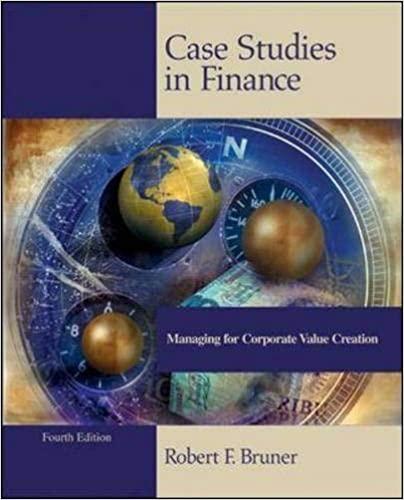5 / 7 100% b. b Find the total cost of this loan (hint, this is an easy one!) How much were you able to "cash out" by refinancing mist the amount you can borrow minus the outstanding loan balance.) Part IV: Finance the Car by Refinancing My House? Recap: Your current loan balance is $219,400 after making 53 payments of $1,024 50. With your current mortgage, the total cost of your home loan was You have payments remaining for a total of (Z) "Z" is the total remaining cost of your home if you pay out the existing mortgage. If you are going to pay for your car from proceeds of "cashing out" by refinancing your home. you will be paying the full $32,000 for the car. Let's then assume that you can get $2500" for a private party sale of your used car so that you need to "cash out" (in other words finance) $29,500 to properly compare to the dealer financing scenarios. (is may seem low, but trade ins are often well over for market value for such soles not to be confused with fair market value of the cor if you were going to purchase from a dealer with the assurances financing etc. that go with those soles) SAMSUNG 6/7 100% + 14 You need to finance $219,400 + $29.500 = $248,900 Loan terms: 30 years, 2.85% annual interest a. Find the monthly payment to finance the $248,900 $ b. The total cost of the new loan is: C. Find the difference between (z) on the previous page and part "b" above. This is the ultimate cost of your car. Cost of your car through refinance: (W) Part II: Financial Decision Making Buying the Car from the Dealer: I is a "no brainer" that in an ideal world, we would all choose the loans such that we pay the absolute minimum in interest/overall. Finance Part III: Financial Decision Making Buying the Car from the Dealer: It is a "no brainer" that in an ideal world, we would all choose the loans such that we pay the absolute minimum in interest/overall. Finance companies and auto manufacturers that have their own finance companies offer incentives to maximize their bottom line. If you cannot pay, they assess late penalties. If you default (stop paying) on the loan, they have the title on the car and can repossess it. if you play the game and have the resources to do so, you can save a lot by taking advantages of incentive. With that in mind: (A) Which CAR loan scenario (Option A on Option B from Parti) is the "no brainer"? Explain by providing a few numbers from the table. There is no right or wrong answer to this second question. You can use your personal views/situation or speculate using a hypothetical I will suggest things like the ability to reliably make payments for the full term of the loan percent of income for the loon, etc (B) Discuss a situation where you might choose the "lesser" option to finance your vehicle. Include some comparison values from the table these can be the same ones cited in ) and how they are acceptable" to you for the reasons you state in your situation, 7 7 7 100% + 3) There is no right or wrong answer to this second question. You can use your personal views/situation or speculate using a hypothetical. I will suggest things like the ability to reliably make payments for the full term of the loan percent of income for the loan, et (B) Discuss a situation where you might choose the "lesser" option to finance your vehicle. Include some comparison values from the table (these can be the same ones cited In "A") and how they are "acceptable" to you for the reasons you state in your situation. (C) Refinancing the home to pay for the car: This option is often attractive due to low monthly payments. However the home is used as collateral for the home and the cor. Do you think it is a good idea to use this option to purchase the cor? Explain










